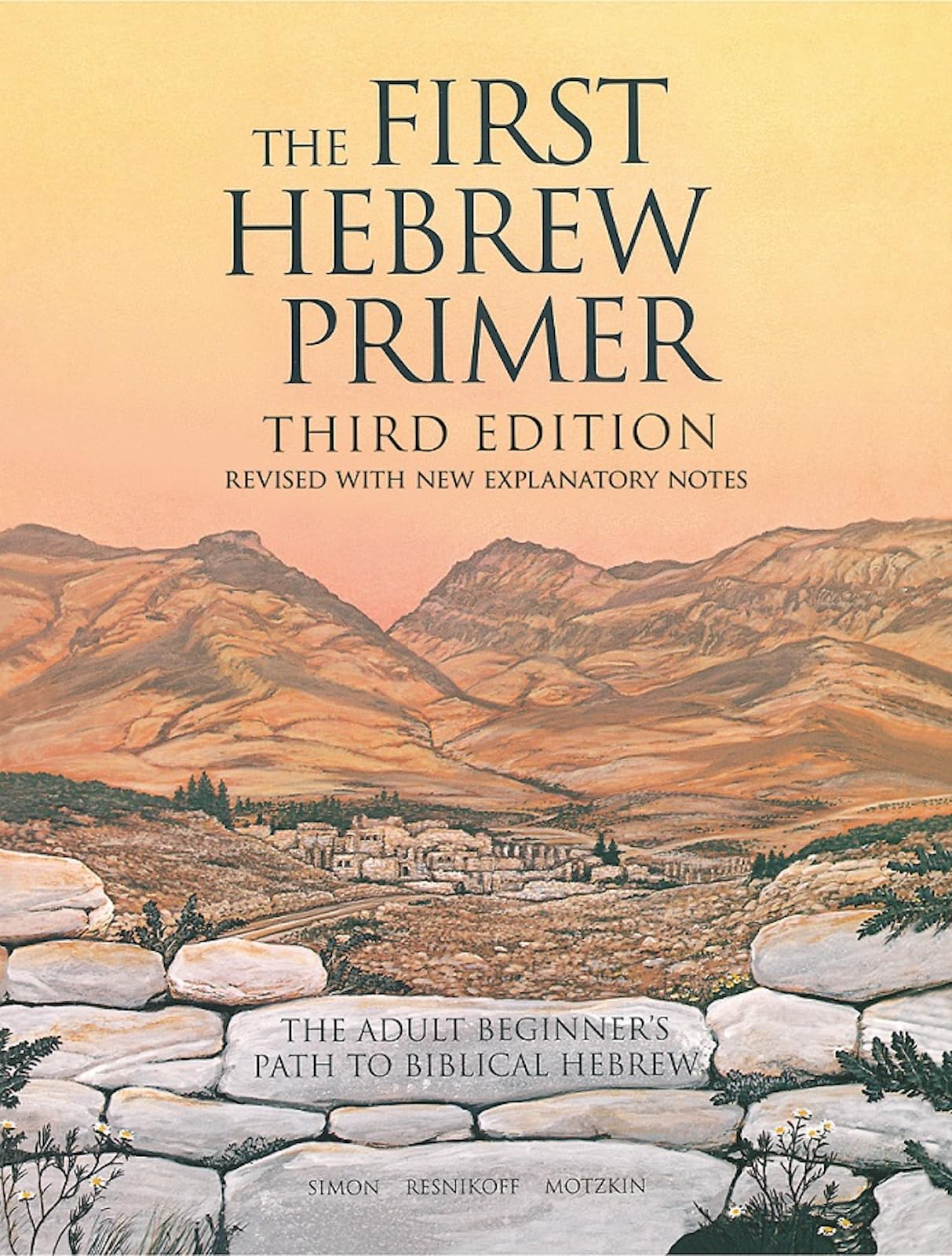


Full description not available
D**G
Best for Self Study
I have used several texts (Futato, Dobson, Lambdin, etc.) and found First Hebrew Primer (3rd Edition) to be the best for serious adult self-learning of Hebrew. I have been at it for four months (now on page 87 - maybe I'm a slow learner) and continue to use this book almost exclusively. To begin with, the cost is reasonable. Secondly, it has a separate Answer Book a necessary requirement for self-teaching. Having a separate book is best because it avoids the temptation to look "nearby" to find the answer, or continually keep flipping the book around and losing one's place and thus encourages in-depth thought to the responses. Third, the text is sufficiently large and the "white space" optimum. I find the competing book by Futato to be too full of white space so that reading is actually inhibited and Lambdin's book is too dense, resulting in the same shortcoming. I learned the alphabet and pronunciation using Futato's scripture verses (RYHB - Read Your Hebrew Bible) and still use his online videos for pronunciation/verbalization along with the immersive Aleph With Beth, whose work is phenomenal. (Aleph with Beth is immersive videos, free, and absolutely unsurpassed but I find my learning style requires a complementary text so I watch the Aleph with Beth along with First Hebrew Primer.) First Hebrew Primer is not for the faint-hearted. The exercises are many, long, and tedious but I am seeing results - the vocabulary is reinforced and the forming of tenses, gender, etc. is "drummed' into you. It's "old school" rote and it works wonderfully. First Hebrew Primer (FHP) goes "over and over" the material to ensure retention. The" BH Cards" phone app is keyed to the FHP vocabulary and even has audio pronunciation.
S**D
Perfect to Teach Yourself Hebrew
This text is perfect for self learning. It starts at the beginning with letters and proceeds along with a manageable pace. The explanations can be a bit sparse so if you know someone who speaks Hebrew it could be helpful but not necessary. You have to be patient with yourself and take time to master each chapter before proceeding. Getting the answer book is an absolute must or you won’t know what you’re doing wrong which is important for learning. I also highly recommend getting the flash cards and you might consider getting the accompanying audio book through Audible. There is another popular self taught Hebrew text which I returned because it looked very difficult to use. Trust me, this is the one to get.
H**
Very helpful!
Very thorough beginning Hebrew book.
J**7
Excellent resource if used correctly
I'm learning Hebrew on my own, and this book has been a fantastic resource, though I'm not all the way through it yet. It lays things out in a logical format, paces lessons well, and introduces useful vocabulary in a timely manner. But it should be used correctly in order to benefit the most. Some tips:1) The sections on the alphabet are a few short chapters at the beginning. Do not proceed further until you have thoroughly mastered this or you will be frustrated beyond belief. I made myself flash cards copying from the chart on the last page of the book and learned the vowel points at the same time. If you move on without knowing all the letters and what they sound like, the rest of the book will seem too much.2) It gives pronunciation guides but you really need to listen to someone say it. There are enough free online resources to at least get a general idea without spending more money on audio tapes.3) Also, the pronunciation given in the book is Sephardic, but it is very easy to work around this if that's not what you want to learn. There are only a few minor differences with Ashkenazic pronunciation that can be quickly figured out looking at online transliterations of Jewish liturgy. The major differences I have found are in the pronunciation of tav with no dagesh, which sounds like an S not a T in Ashkenazic, and the vowel point kamets, which the book does not differentiate from patach but which is more of an O sound in the Ashkenazic rendering. Chassidic is probably harder but you can start by saying the cholem as "oy" instead of o.4) Use other resources for reading practice. I have an Artscroll Chumash with Hebrew and English where I just read aloud a couple of pages a day to try to get faster. Transliterated siddurim are also good for double-checking pronunciation. You may start making vocabulary and conjugation connections on your own!5) Don't go too fast. A chapter or two a day is probably enough. I find myself getting frustrated and forgetting things if I do more than that. It is not a language you can cram.
Trustpilot
1 month ago
4 days ago